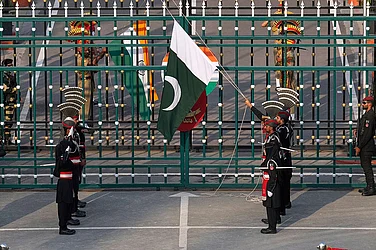Tamaki Tsukuda, minister (economic) of the Japnese embassy in New Delhi spoke to Pranay Sharma in the aftermath of the violence at Maruti-Suzuki’s Manesar plant. Excerpts from the interview:
What according to you happened at the Maruti plant in Manesar?
I have no independent way of knowing what happened there and my views are based on what I have been told by Maruti authorities. According to that, it is primarily a criminal act, not a labour dispute. It is too early to speculate on the phenomenon. But we think it has to be treated very rigorously by the government since it resulted in the death of a senior executive and injured several others. Justice must be administered.
Does this reflect a general trend of dissatisfaction of workers with the Maruti management?
It distorts the picture if we try to talk about and see this is as a general tendency among workers in Maruti.
Do you think the violence at the plant was on the spur of the moment?
Cannot comment on that but there are many who feel it was premeditated.
If it was premeditated then does it also reflect a failure on part of the management?
Difficult to say but with the benefit of hindsight one can always argue that they should have been more cautious to stop the escalating tensions or that Maruti Suzuki should have been aware of the pent up emotions among the workers, but these are all easier said than done. In this particular instance there is no excuse for such a criminal behaviour.
Although from time to time there were heated exchanges and the situation was sometimes tense but they never realized there could be such an eruption or explosion of the workers’ frustration. The management perhaps felt they would not fail in the negotiations. Part of the problem also stems from the new trade union that was formed. The leaders were not conversant with trade union practices. In a way, both sides were trying to learn. The management did not quite know how to deal with a new band of people representing the workers. The trade union leaders were not fully equipped with the practices of how such discussions should be carried.
Is there also some problem with the kind of work-culture that Maruti Suzuki is trying to implement?
Maruti- Suzuki has been in India for over 30 years. If it is a newcomer I can understand. But Maruti’s work culture is well understood. If most people are not satisfied with it they will not come to Maruti and want to work there. Moreover, the Japanese style or its work culture highlights punctuality, discipline, harmony where the management as well as the workers all have a united objective and together try to achieve it.
Apart from punishing the guilty what more do you expect from the government?
The assurance that we have got from the government is satisfactory but we also feel the labour laws in India are little archaic and there needs to be some changes. We are not saying that it should not look after the workers or protect them but they will have to be a little more flexible and more balanced to also help the management.
How are Japanese investors likely to react after the Manesar incident?
It is difficult to determine the direction of the Japanese business and what they will do. In the immediate term, it is not going to help since the violence got wide coverage in the Japanese media and that has created a negative impact. But once the dust settles down, the Japanese businessmen and investors may factor in other elements and may still favour India as an investment destination.
















